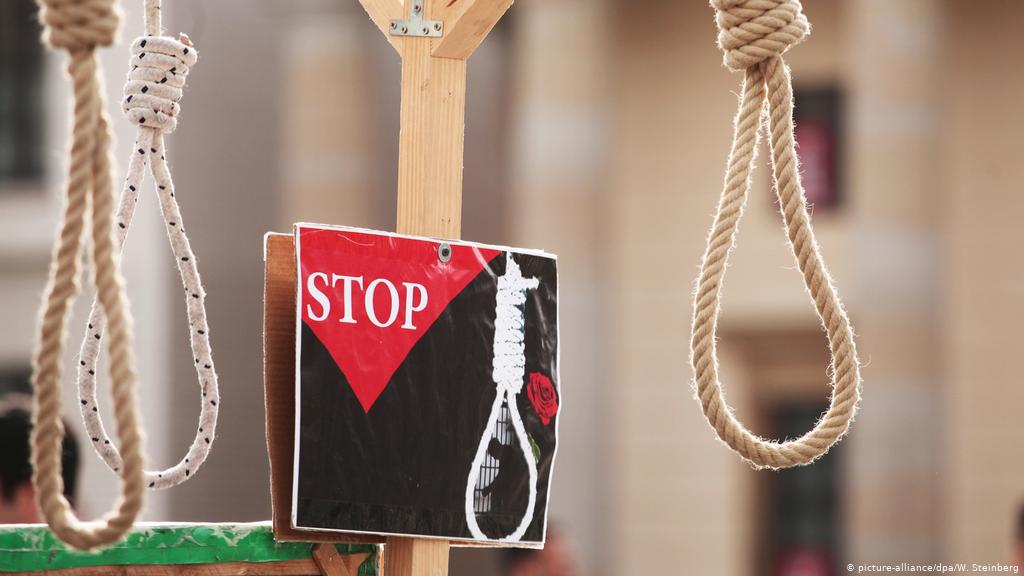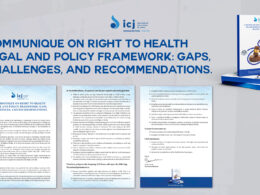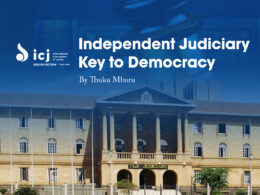By Joanne Mutonga
In the second part of ICJ Kenya three-part series, ICJ Kenya Programme Officer Joanne Mutonga discusses on the abolition of death penalty as a regional movement.
The African Charter on Human and Peoples Rights does not make any provision on the abolition of the death penalty nor set out any limitations or exceptions on its application. The African Charter makes provision on the right to life providing that, Human beings are inviolable…Every human being shall be entitled to respect for his life and the integrity of his person. No one may be arbitrarily deprived of this right.[1] It is against this provision that the African Commission has backed its work and engagement in the death penalty campaign.
The African Commission has made deliberate steps to ring fence gains entrenched in international human rights instruments on the death penalty and protection of the right to life. In 1999, at the 26th Ordinary Session of the African Commission in Kigali, Rwanda, a Resolution on the Moratorium on the Death Penalty[2] was adopted. Similarly, in 2008 at the 44th Ordinary Session of the African Commission in Abuja, Nigeria, the African Commission adopted a resolution on the on the Moratorium on the Death Penalty[3].
In September 2009, the African Commission convened the First Sub- Regional Conference on ‘The Question of the Death Penalty in Africa’, in Kigali, Rwanda[4]. The Conference was organized by the African Commission on Human and Peoples’ Rights as part of the mandate of the Working Group on the Death Penalty in Africa, a special mechanism established during its 37th Ordinary Session in Banjul, Gambia. The conference begun conversations between the African Commission and citizens drawn from member States. One of the Key recommendations emanating from the Conference was the need for a protocol on the abolition of the death penalty in Africa.
The African Commission on Human and Peoples’ Rights meeting at its 26th Ordinary Session in Kigali, Rwanda urged retentionist member states to: (i) limit the imposition of the death penalty only to the most serious crimes, (ii) consider establishing a moratorium on executions of death penalty; (iii) reflect on the possibility of abolishing death penalty. In 2011 the African Commission conducted a study on the question of the death penalty in Africa, in its recommendations the Commission recommended for the adoption of a Protocol to the African Charter on Human and Peoples’ Rights on the Abolition of the Death Penalty in Africa and called for the support of the African Union and the Member States. In 2014, a Continental Conference in the Death Penalty was convened in Benin. The Conference brought together 78 human rights organizations who drafted a manifesto to the Commission supporting the adoption of a Protocol to the African Charter on Human and Peoples’ Rights on the abolition of the death penalty[5] and calling upon the African Union to support the adoption of the Protocol to, “fill the gap in the African Charter with stronger emphasis on restorative rather than on retributive justice[6].”
In 2015, at its 56th Ordinary Session, the African Commission officially adopted the draft Protocol on the Abolition of the Death Penalty in Africa. As of October,2020, Out of the 54 States Members of the African Union, 20 have abolished the death penalty in law, 18 no longer execute those sentenced to death, 38 countries are therefore abolitionist in law or in practice and 16 States still retain the death penalty as a punishment[7]. Although AU Member States are yet to ratify the Protocol, the abolition of the death penalty be it in practice and/or in law has been lauded as a significant step in the right direction.
-THE END-
[1] Article 4 of the African Charter on Human and Peoples Rights
[2] ACHPR/Res.42(XXVI)9
[3] ACHPR/Res.136(XXXXIIII).08
[4]https://www.achpr.org/public/Document/file/English/kigali_framework.pdf
[5] https://www.fidh.org/IMG/pdf/manifestodeathpenaltyafrica.pdf
[7] https://worldcoalition.org/campagne/ending-the-death-penalty-on-the-african-continent/










